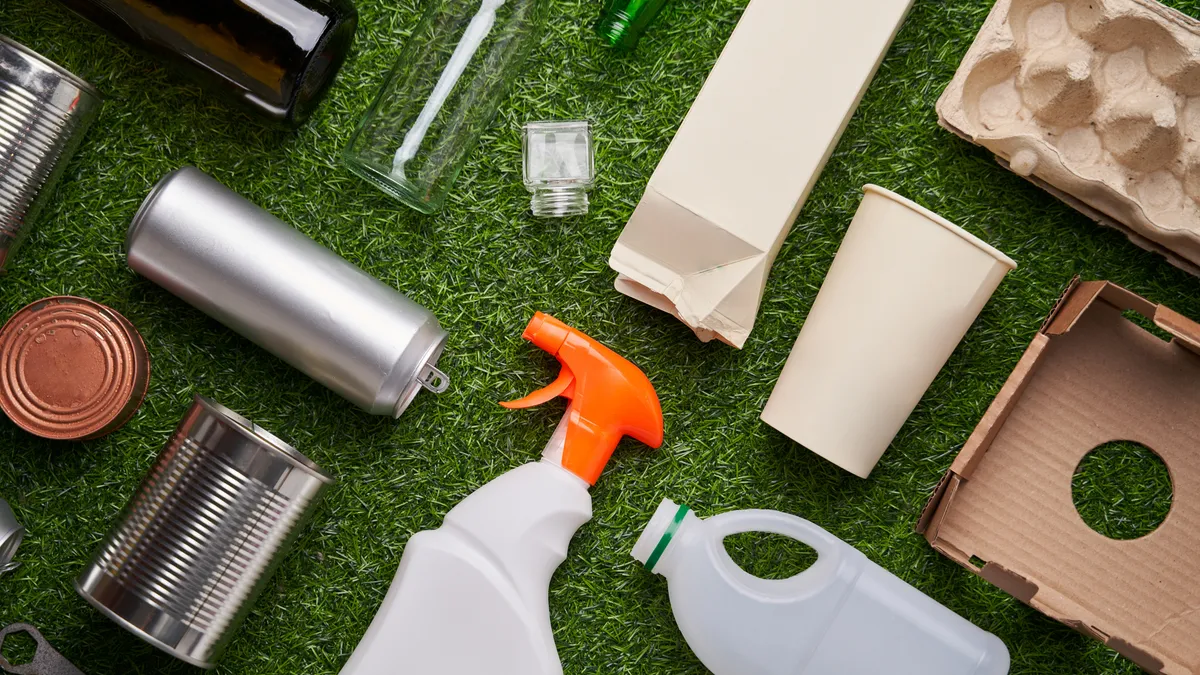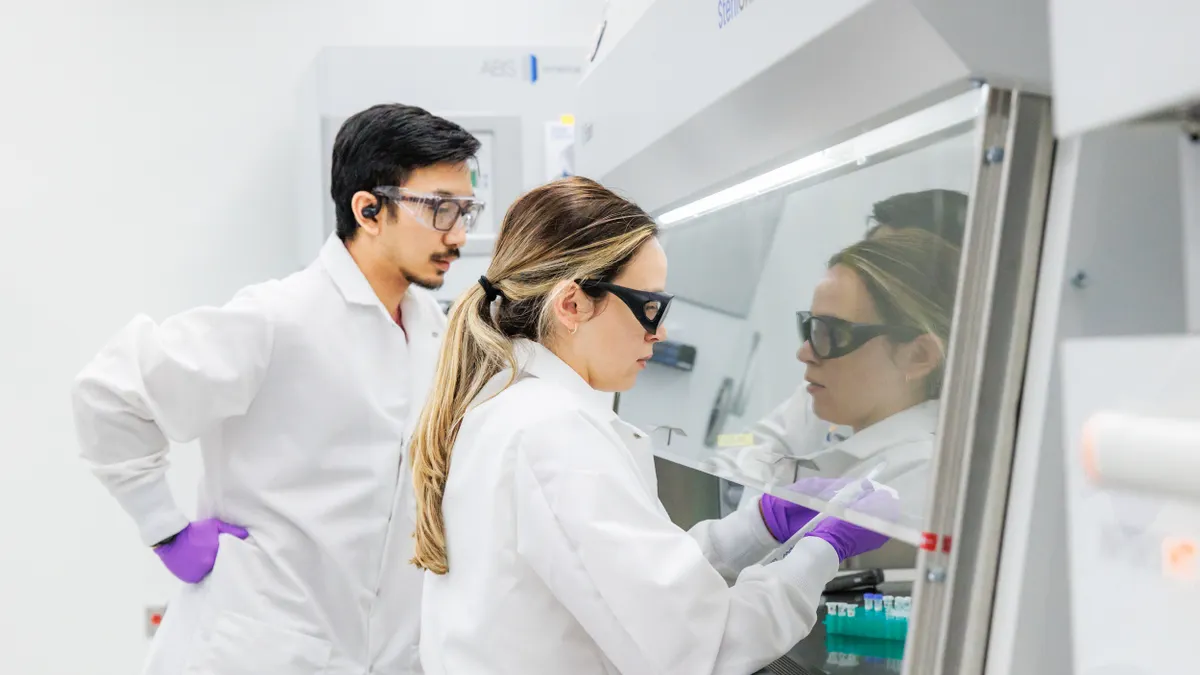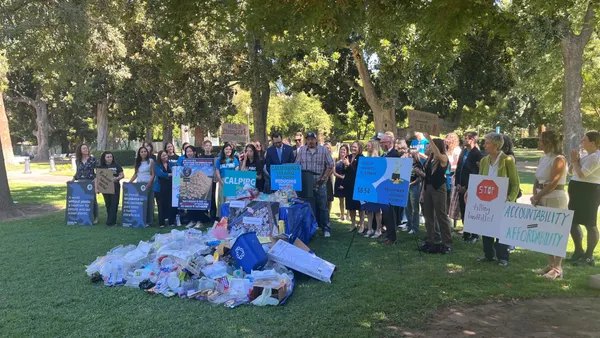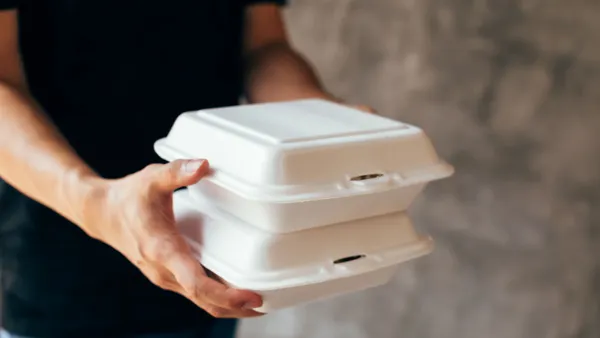Dive Brief:
- Some packaging groups are voicing support for extended producer responsibility legislation introduced in Rhode Island this month that would jointly set up a deposit return program for beverage containers in the state.
- The day after a special state commission studying plastic bottle waste released its final report with recommendations on April 8, commission co-chair Rep. Carol Hagan McEntee introduced H 6207. Other bills were also introduced in the wake of the commission, including ones singularly focused on EPR and deposit return, respectively.
- “Rhode Island can learn from, and leapfrog, other states by adopting House bill 6207,” leaders from the Can Manufacturers Institute, Glass Packaging Institute and Association of Plastic Recyclers, along with other partners, wrote in a Boston Globe op-ed Friday.
Dive Insight:
The commission was established in 2023 to convene a range of perspectives. After 13 hearings, the final report recommended three possible policy paths forward.
The first would be to combine EPR and DRS to create a system, managed by a PRO, that addresses litter and improves recycling. The commission said this ought to include all beverage and recyclable container types, with a 10-cent redemption value. Separately, the commission also offered recommendations for a DRS system that’s “producer run” and funded, like in Oregon, as well as a distinct packaging and paper EPR program.
Multiple state food and beverage industry groups did not support any of the recommendations.
McEntee said following the commission’s engagements: “Something needs to change drastically.”
“The simple truth is that our recycling system is broken and plastic waste is filling up our landfill to capacity,” McEntee said in a statement, calling the state’s 26% recycling rate “measly.”
The bill was referred to the House Environment and Natural Resources Committee. If enacted, producers would have to join a PRO by July 1, 2027, with the program scaling up in 2030. The PRO would be bound to performance targets of collection rates of 50% come 2033, 65% come 2037 and 75% come 2041. In each of those cases, the expected recycling rate would be 10% lower.
CMI, GPI and APR are part of the Coalition for High Performance Recycling and had the opportunity to testify before the commission at the end of 2024.
In their op-ed, the packaging groups highlighted what role this legislation could play in the region.
“Rhode Island and New Hampshire are the only states in New England without a bottle bill,” they wrote. “The rest of the region produces higher quality material that is more capable of being recycled and used for new packaging.” They also emphasized the legislation’s potential to strengthen “resilient, domestic supply chains.”
The last new bottle bill in the U.S. was Hawai’i’s in 2002. Of the five states that have packaging EPR laws on the books, California, Maine and Oregon also have bottle bills.
Rhode Island’s legislature has seen EPR bills in play in multiple past sessions. The state passed other pieces of packaging-related legislation in the last few years, including bans on disposable food containers made from polystyrene foam, PFAS in food packaging and single-use plastic bags.











